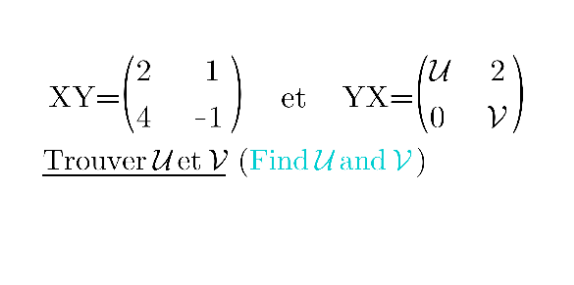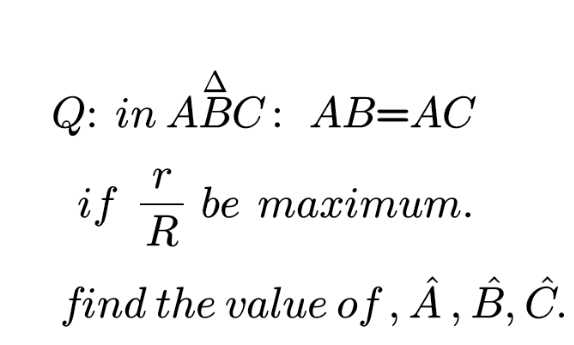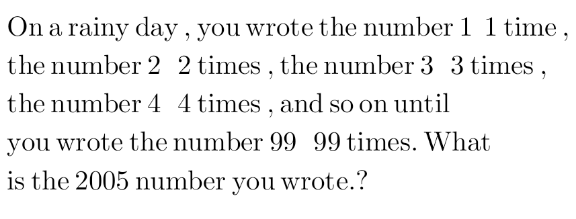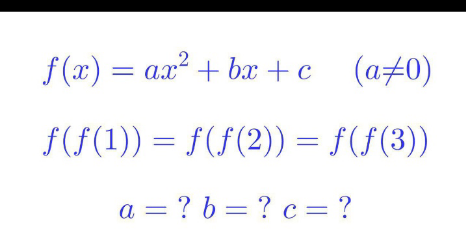
Question and Answers Forum
AllQuestion and Answers: Page 380











Pg 375 Pg 376 Pg 377 Pg 378 Pg 379 Pg 380 Pg 381 Pg 382 Pg 383 Pg 384
|
Question and Answers Forum |
AllQuestion and Answers: Page 380 |
| solve the follwing equation x(√(x )) + y(√(y )) = 3 and x(√(y )) + y(√(x )) = 2 someone solve the above equations in the following way x^3 + y^3 + 2xy(√(xy )) = 9.....(1) and x^2 y + y^2 x + 2xy(√(xy )) = 4......(2) (1) − (2) ⇒ (x − y)(x^2 − y^2 ) = 5 hence x = 3 and y = 2 which is obiviusly does not satisfy the original equations. where is the fallacy in the above solution? Please explain. |
| Find prime numbers of 3 digits such that equal to sum of 3 diffrent numbers of prime |
| if xy+y^2 +zx = 48; where x,y,z are three positive real numbers then find the maximum possible value of the product (xyz) |
| For x ,y ε Z^+ such that 7x+9y=405. Find max value of x−y. |

|
| find the range of the function f(x) = cosx{sinx + (√(sin^2 x + sin^2 α )) } |
| P_n = e^( ((1/1) −(1/2)) +((1/3) −(1/4)) +...+((1/(n−1)) −(1/n))) = e^( (1−(1/2) +(1/3) −(1/4) +...+(1/(n−1)) −(1/n))) = e^( Σ_(k=1) ^n (( (−1 )^( k+1) )/k)) ∴ P = lim_( n→∞) (e^( Σ_(k=1) ^n (((−1)^( k+1) )/k)) ) = e^( lim_( n→∞) ( Σ_(k=1) ^n (((−1)^(k+1) )/k))) = e^( ln(2)) = 2 |
| Number of even composite factors of 2520? |
| lim_(x→∞) (1+(2/x))^(−x) =? |
| lim_(x→0) ([((nsinx )/x)]+[((ntanx )/x)]) , where [:] denotes the greatest integer function and n∈I−{0} |

|

|

|
| Solve the differential equation 2(2xy+4y−3)dx+(x+2)^2 dy=0 Mastermind |

|
| x^3 −5x−6=0 x=? |
| form a differential equation from the following 1) x^2 +y^2 −2ax+1=0 a=constant 2) y=Aϱ^(3x) +Bϱ^(−2x) |

|
| how is the solution of this qution (√((x)(x+1)(x+2)(x+3)+1)) when determinant (((x=50))) determinant ((),()) |

|

|

|
| ∫_( 0) ^( 1) ((3x^3 − x^2 + 2x − 4)/( (√(x^2 − 3x + 2)))) dx |
| 3^5^x = 5^3^x solve for x |

|

|
Pg 375 Pg 376 Pg 377 Pg 378 Pg 379 Pg 380 Pg 381 Pg 382 Pg 383 Pg 384 |